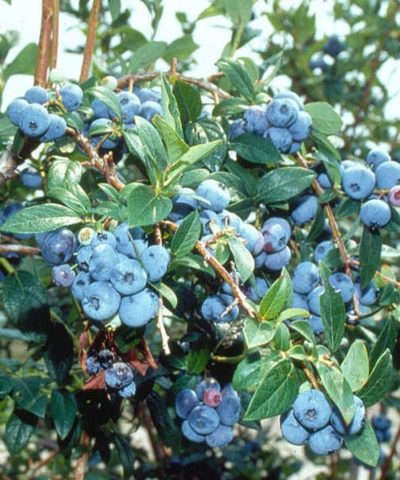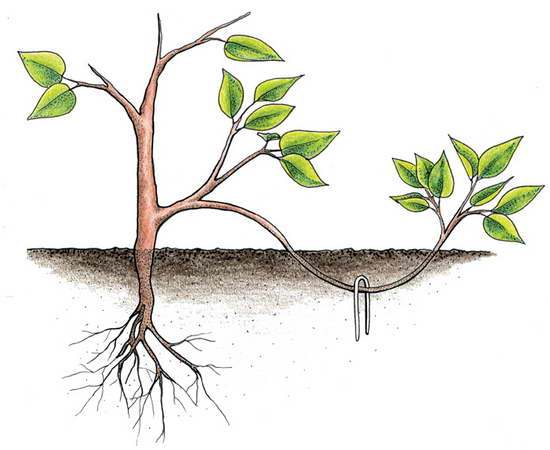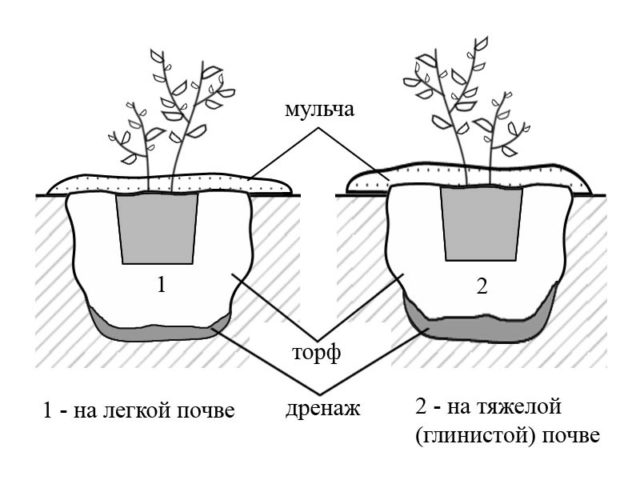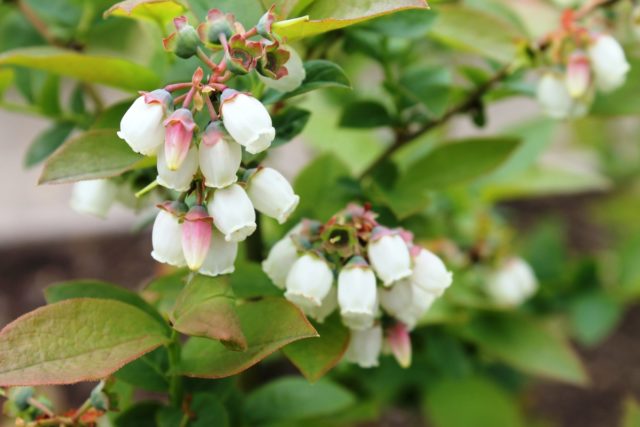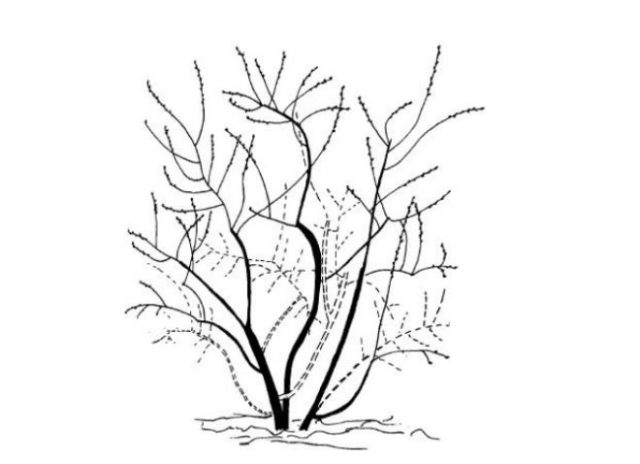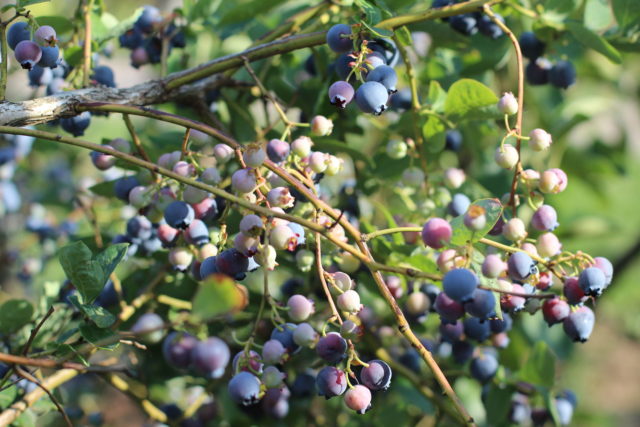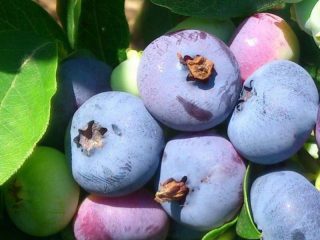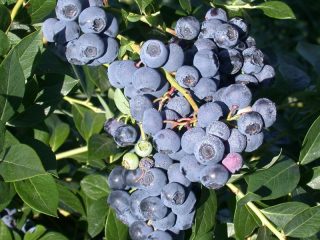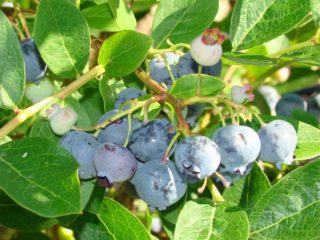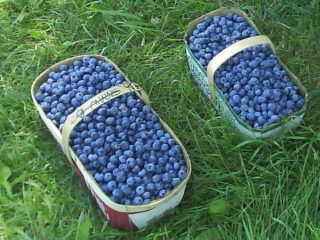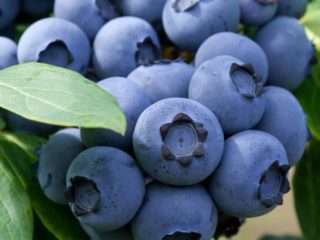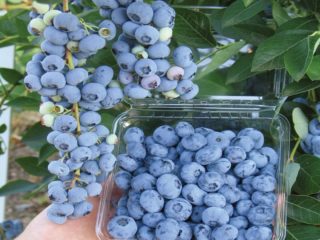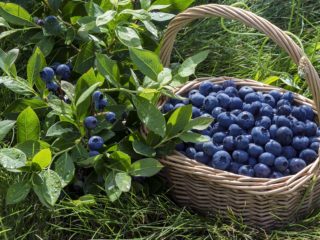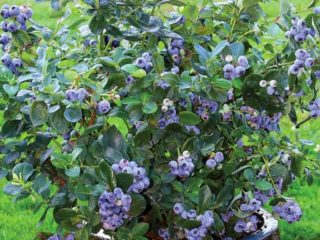Content
Bluray blueberries were developed in the USA in 1955. The basis for the derivation was the work of Frederick Kovylev, George Darrow, and Arlen Draper. The variety is not listed in the State Register.
Description of blueberry variety Blue Ray
The Blueberry variety (pictured) is mid-season and tall. The bushes reach a height of 1.8 m, spreading. The leaves are dark green, rounded. Flowers are light pink.
Features of fruiting
The berries are large, rich blue in color, weight is about 2.2 g. The fruits begin to ripen in mid-July, the fruiting period is up to 2 weeks.
There is no need to plant pollinating varieties nearby, since Bluray is a self-pollinating variety. Blueberries are used to make jam, frozen, and dried. It can be used to obtain juice and make jams.
Advantages and disadvantages
Like all garden crops, Bluray blueberries have pros and cons. Advantages:
- frost resistance, the bush can survive frosts down to -34°C;
- rich harvest, over 5 kg of berries are harvested from each bush;
- decorative effect, manifested by abundant spring flowering.
The disadvantages include:
- excessive fruiting. Despite the rich harvest, the abundance of berries is considered a relative disadvantage, since it depletes the bush;
- spreading - it is impossible to plant several bushes tightly;
- demands on soil acidity.
If blueberries are grown in the yard for personal purposes, then planting more than 1–2 bushes on the plot is impractical. Abundant fruiting leads to difficulties in processing the berries.
Features of reproduction
The most common way to plant Bluray blueberries at your dacha is to buy a seedling. It is possible to propagate the plant yourself. Blueberries of any variety are propagated using three methods:
- layering;
- cuttings;
- seeds.
The first method involves the need to lay the lower individual branches on the ground, attach them, and cover them with sawdust. After 2 years, the first roots will appear. The branch is separated from the bush and planted for growing.
The method of cutting Blueberry varieties involves taking cuttings in the fall. Then each is placed in a container with an acidic substrate, moistened, and placed in a heated greenhouse. Until spring, future seedlings are regularly checked and watered. When the plants are about two years old, they can be planted in open ground. Before this, they were kept only in a greenhouse.
Seed propagation is permissible from material obtained independently. Seeds are extracted from healthy, ripe berries, washed and dried. In winter, the material must be stratified - it is enough to keep it in the basement or in the refrigerator. In spring, blueberries are sown in open ground, deepened by 1 cm.The top is mulched with sawdust and peat (3 cm layer). The soil should be warm, from +23°C. It is necessary to regularly loosen, water, and weed the soil until full shoots appear. Fruiting begins after 8 years.
Planting and care
Proper planting of a seedling is the key to future health and good fruiting. Blueberry Blue Ray is no exception. By planting on time, in suitable soil, the gardener will provide the bush with better survival rate.
Recommended timing
Garden blueberries of the Bluray variety are planted in the ground either in early autumn or late spring. The timing of planting seedlings from a container is more flexible, however, July is not a suitable month.
It is advisable to cover autumn plantings with spruce branches for the winter.
Site selection and soil preparation
The right location is important for the plant. It should be a very sunny area protected from the wind. It is permissible to fence the planting of Bluray shrubs on the north side with a hedge.
Soil characteristics are also important. The soil must have good air and water permeability. Mixtures with peat and sand are suitable, but completely peat soil is not recommended. The soil should be moist, but waterlogging can damage the seedlings and lead to their death. An unfavorable place for planting leads to a decrease in the yield of the bush and leads to the crushing of berries.
Landing algorithm
There are 2 common methods of planting Bluray berry bushes - in wells and in ridges. The first method of planting is as follows:
- dig holes 40 cm deep and up to 1.5 m wide;
- covered with a substrate made from a mixture of pine humus, pine sawdust (it is acceptable to replace it with pine needles), and peat;
- the container with the seedling is soaked for 30 minutes;
- The plant is taken out, planted in a hole, deepening the root collar by 7 cm, and watered.
It is prohibited to add ash, compost, manure, humus, or any alkaline fertilizers. Planting in the ridges is carried out according to the following algorithm:
- the soil is removed to a depth of 10 cm, the width of the hole is 1 m;
- fill the substrate as for planting in wells;
- a Bluray plant is planted at the very top, creating ridges.
Growing and care
In order for the plant to be healthy and bear fruit well, proper care is necessary. The most important things for blueberries of the Bluray variety are fertilizing, watering, and shaping pruning.
Watering schedule
In order for blueberries of the Bluray variety to bear fruit well, it is necessary to water the bushes every 3 days. Each bush should require at least 10 liters. water.
It is permissible to organize drip irrigation, but ordinary irrigation will still need to be used to acidify the soil.
Feeding schedule
Fertilizing plants of the Bluray variety with mineral fertilizers is carried out according to a fixed scheme (as needed).
Age | Number of tablespoons |
2 years | 1 |
3 years | 2 |
4 years | 4 |
5 years | 8 |
6 or more years | 16 |
The lack of minerals is determined by the appearance of the Bluray plant:
- Notdostnitrogen flow – growth slows down, leaves and shoots turn yellow, berries become smaller;
- phosphorus deficiency – leaf blades turn purple and press against the stem;
- lack of potassium – the ends of the leaves die, the plants become covered with spots, the young shoots turn black and die;
- lack of calcium – the leaves are deformed, the edges turn yellow;
- magnesium deficiency – redness of the leaves along the edges, the middle remains green;
- boron deficiency – the upper leaves become bluish, the veins turn yellow, the shoots stop growing and die;
- iron deficiency – the leaves turn yellow, the veins remain green;
- lack of sulfur – the leaf becomes yellowish-white, sometimes turning completely white.
Bluray blueberries require soil with an acidity of 3.5–5. Lack and excess of acid manifest themselves in the same way - the bush stops developing, so it is important to regularly check the acidity level.
Bluray blueberries are not fed with compost or manure. Natural acidic fertilizers use sphagnum moss or pine needles. An effective option is to acidify the water for irrigation. To do this prepare:
- solution of oxalic (citric) acid in a proportion of 1 tsp. for 3 liters of water;
- acetic acid solution, proportion – 200 ml per 10 liters of water;
- weak solution of sulfuric acid, proportion – 50 ml per 10 liters of water.
This will maintain a regular level of soil acidity, which is necessary for the health of Blue Ray blueberries.
Trimming
To form the skeleton of the bush, pruning begins when the blueberry is two years old. Branches with fruit buds are removed.
After reaching the age of five, old, diseased branches and branches near the base lying on the ground are removed.
All operations are carried out in early spring, before the buds open. Autumn pruning is acceptable, which is carried out after all the leaves have fallen.
Preparing for winter
Despite their high winter hardiness, it is advisable to cover blueberries of the Blue Ray variety for the winter. The branches are bent to the ground, making sure that they do not break.Then cover with burlap or spruce branches. In winter, it is advisable to add snow to the plant. It is prohibited to use polyethylene film for insulation.
Pests and diseases
The Blueberry variety is resistant to pests and diseases, but occasionally, due to care errors, it can get sick. Common diseases:
- late blight;
- gray rot;
- stem cancer;
- monilial burn;
- Phomopsis wilt.
For prevention and treatment, blueberries of the Blueray variety are sprayed with fungicides, for example, Trichodermin, FitoDoctor.
Pests on blueberries of the Bluray variety are rare; preventive treatment is impractical. It is allowed to remove damaged shoots and leaves from the bush.
Occasionally, blueberries of the Bluray variety can become infected with spider mites and be attacked by caterpillars. To combat insect pests, insecticides are used: Apollo; Vermitek, Aktofit.
Conclusion
Bluray blueberries are unpretentious, but planting and caring for seedlings will cause a lot of trouble, which will pay off in the long run.
